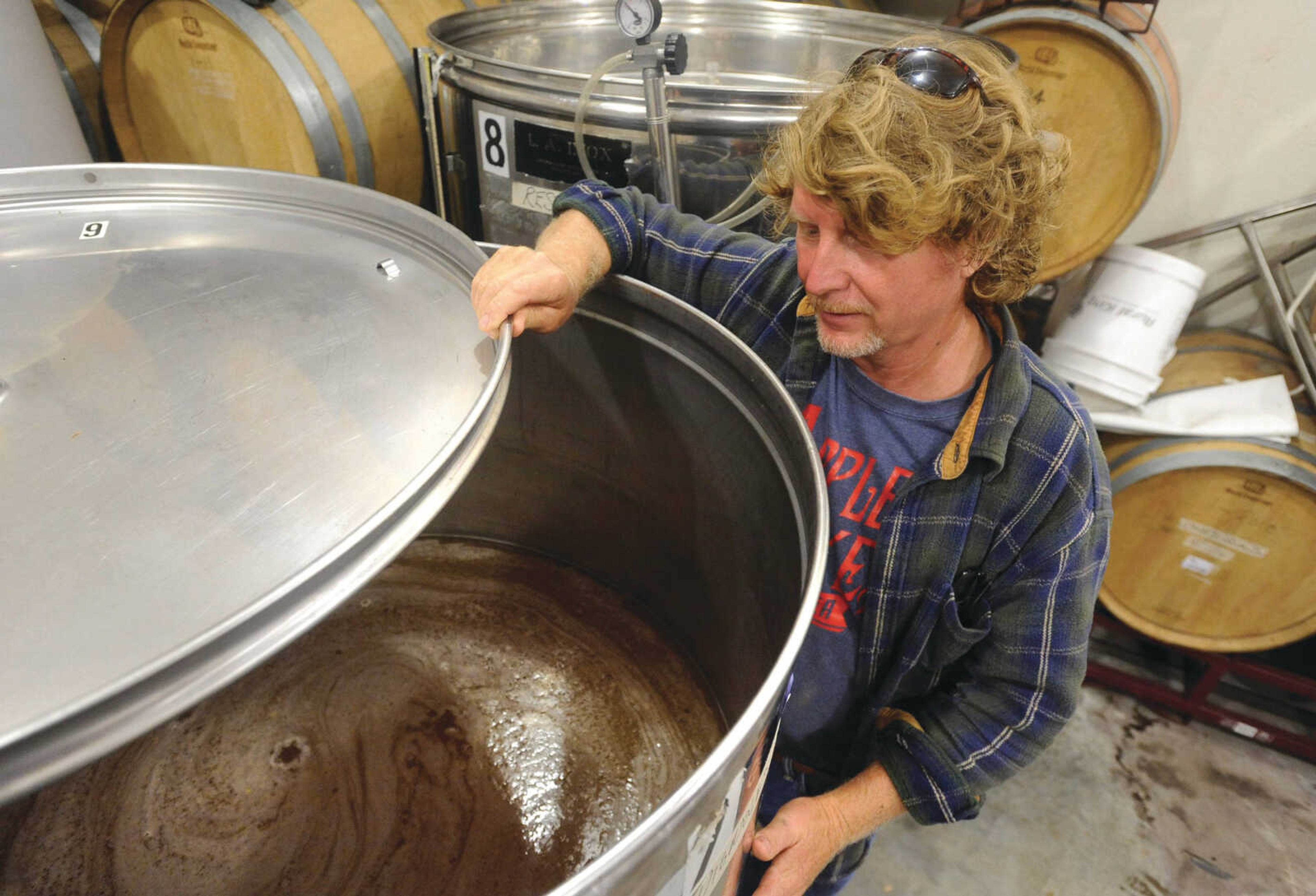Owl Creek Vineyard serves authenticity and locally-grown flavors in Southern Illinois
From employing students from Southern Illinois University to utilizing produce from local growers and manufacturers, Owl Creek works as a collaborative business to help support and build up others in the region. "The way we're built -- some people do different things, but with us it's all local," he says. "So everything is locally grown within the Shawnee Hills, which are the rugged highlands down here in Southern Illinois."...
From employing students from Southern Illinois University to utilizing produce from local growers and manufacturers, Owl Creek works as a collaborative business to help support and build up others in the region.
"The way we're built -- some people do different things, but with us it's all local," he says. "So everything is locally grown within the Shawnee Hills, which are the rugged highlands down here in Southern Illinois."
Genung says Owl Creek has 16 acres of native vineyards and is supported by five other growers that supplement grapes as well.
"We work with all local orchards, so it's all fresh fruit that comes in and that we ripen and process," he says.
Originally founded by Ted Wichmann, the area's first commercial wine maker, in 1980, the vineyard was sold to Genung's family in 2005.
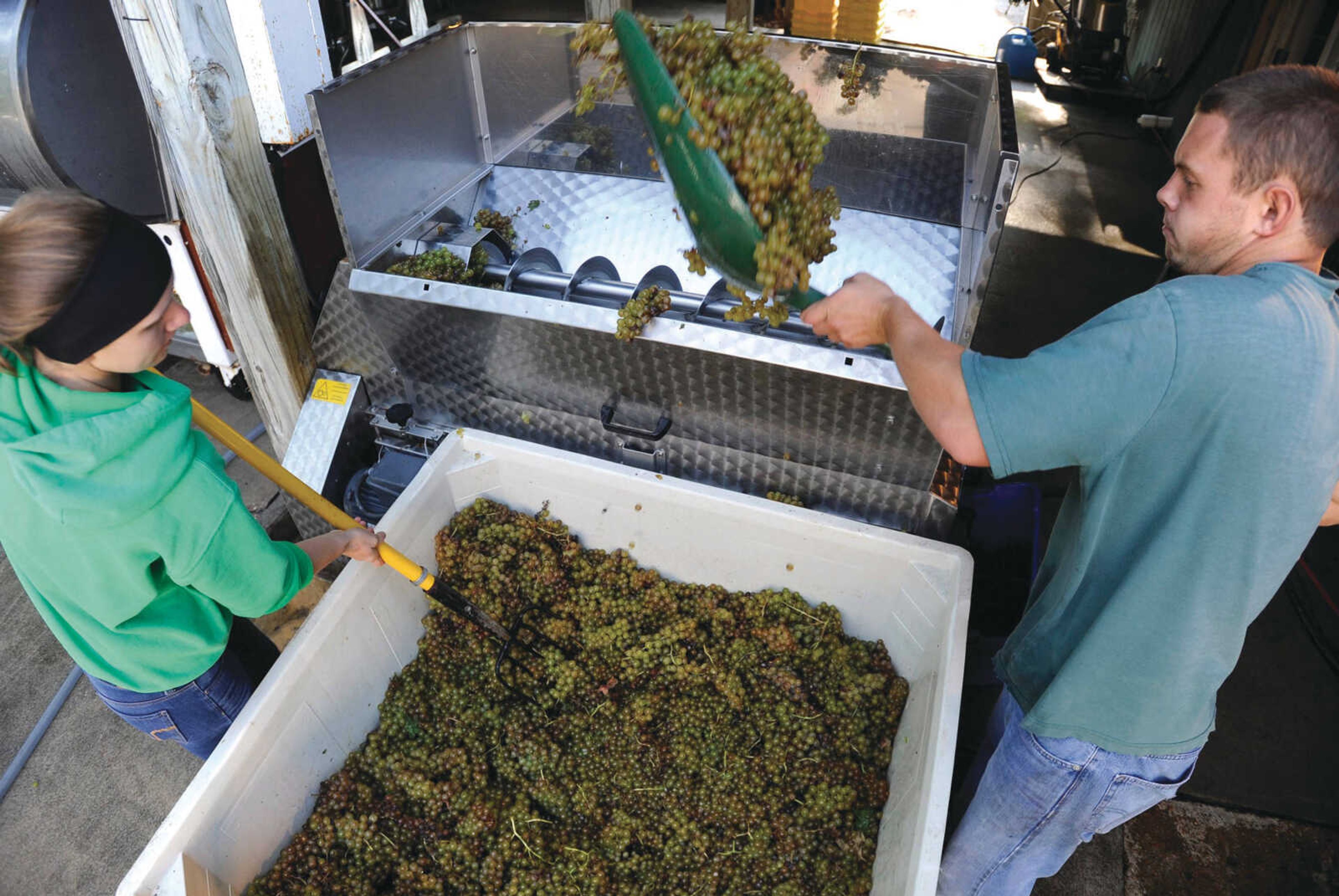
"We've since built on the core products and have also established hard ciders, which is a completely different animal," Genung says. "Making ciders kind of rhymes, with the chemistry and the processes. It shares a lot of things with craft beer, so there's that creativity on the other side of it where regional wine, the styles are very set and it's a little more of a stayed thing."
He says the Great Recession in 2007 led to his interest in adding hard ciders to the winery's production schedule.
"At that point we had built direct distribution to retailers across the state all the way up into Chicago, and it was mostly small bottle shops and that sort of thing. Plus, the [Shawnee Hills Wine Trail] was having a really nice amount of visitors coming through," he says. "The second year of the recession we hit a wall and lost a lot of retailers, traffic declined on the trail and I'd been thinking for years, 'It's a shame someone doesn't do more with apples in the region,' plus also there were murmurings of hard cider becoming an up-and-coming thing."
In an effort to differentiate his business from the rest, Genung decided to use the resources available to start producing the winery's own line of hard ciders.
"It just sounded like a really fun, interesting challenge," he says.
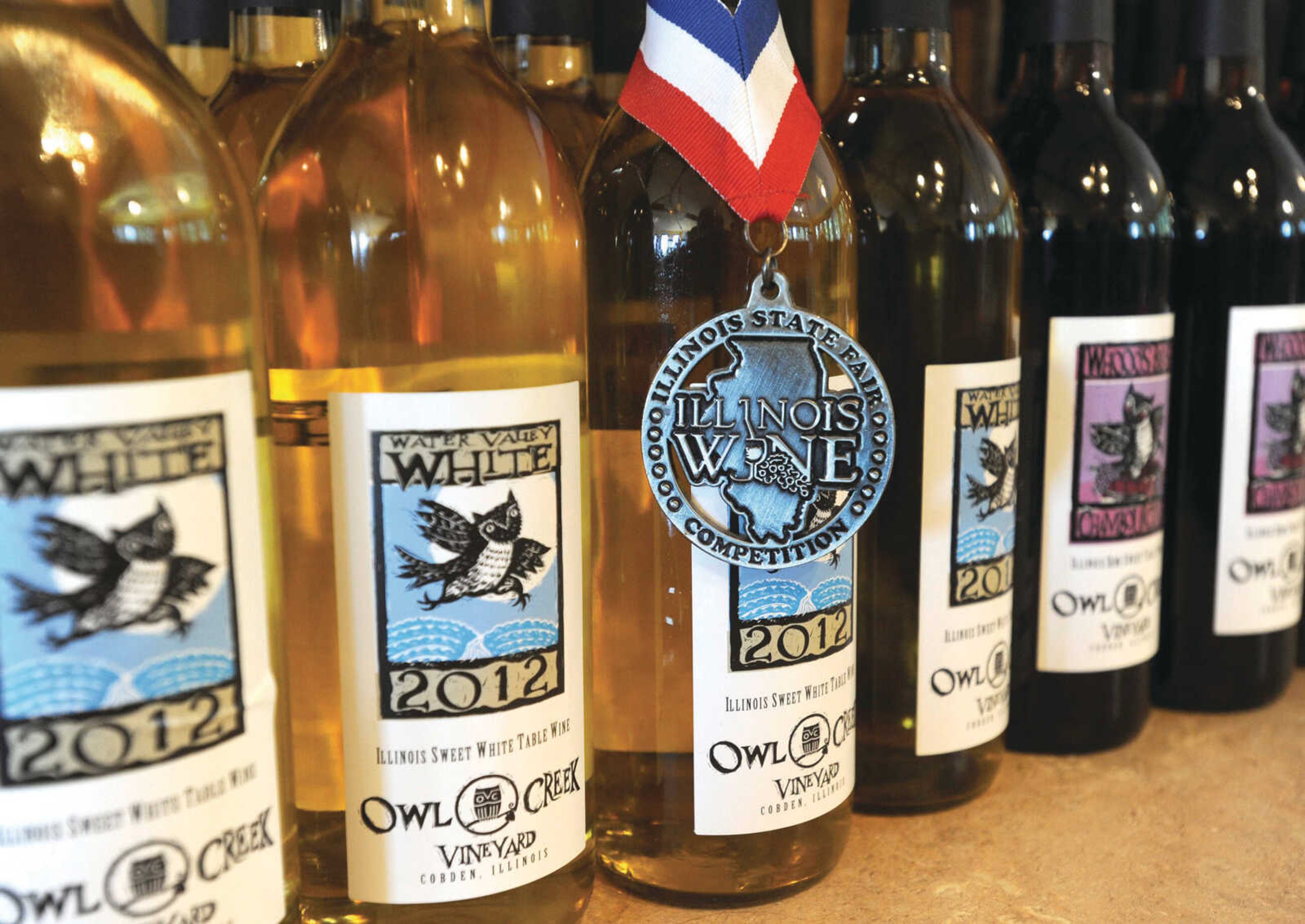
They spent three years in research and development before they launched three core ciders. Today, they serve four core ciders and have four rotating seasonals, with around a dozen new concepts in development.
"If you're going to do something new, you really do need to do your homework," Genung says. "And when the wines were first created in Southern Illinois, the original people, they really did their homework. They took years figuring these things out, so we basically modeled on that."
In terms of wine, Genung says Owl Creek is mostly known for its production of dryer varieties.
"We've been at this a really long time, so we're really good at barrel aging and other things," he says. "... We kind of play to our strengths and a lot of these grapevines that grow here, they're French hybrids, so quite literally they were developed in the Central Noir Valley of France, which actually climate-wise and soil-wise is a lot like here."
Quality is always a top priority in all aspects of the winery, most importantly the wine.
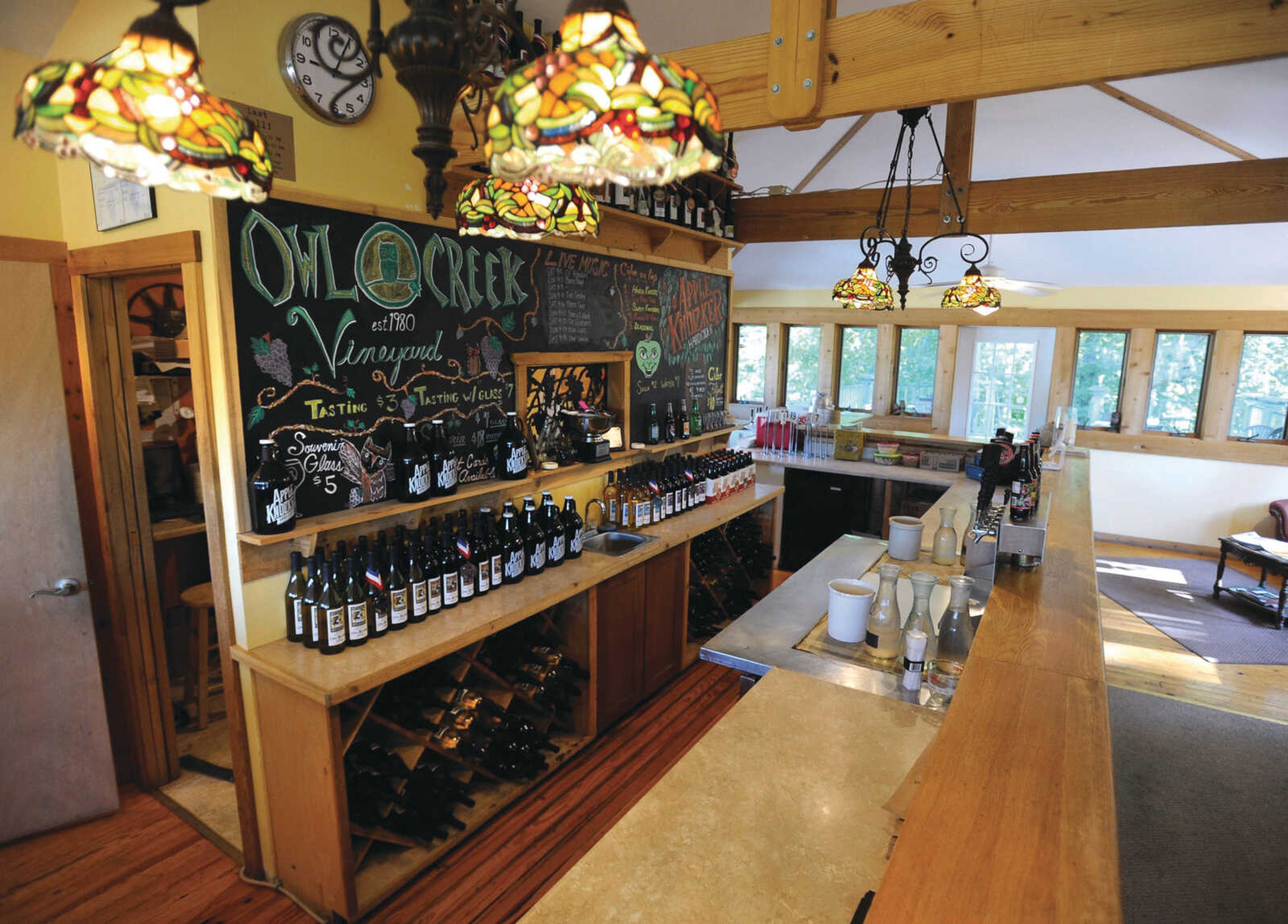
"Our wines are just really, really approachable," Genung says. "If you know something about wine also, you'll find there's a decent amount of complexity there and they're technically well-made. We're big sticklers, if anything isn't quite right it doesn't go in the bottle, doesn't get the label, and we've always held to that."
Genung says the Shawnee Hills Wine Trail is an economic driver for the region, boasting 11 vineyards and a number of other attractions, places to hike and lodge along the way. It also reinforces the local economy because of the wineries' cyclical utilization of area businesses, grape and apple growers, and other resources that help put money back into the local economy rather than outsourcing materials.
"Collaboration drives the entire region, so the wine trail is super important because of that, because that's a marketing cooperative, and what it says to people coming in the region is there's this critical mass of stuff to see and do. So the wine trail is kind of the core of it and then there's all these [bed and breakfasts] and cabins and restaurants and shops and quaint little towns, and it all works together," Genung says.
As time has gone on since the wine trail was founded in 1995, Genung says the culture of the trail has shifted to cater more to people looking for a destination. Rather than people coming in simply to buy a case or two of wine, the trail has grown to incorporate more hospitality, with more in-depth wine tastings, dining options and more seating for a higher volume of guests. To accommodate this shift, the Genungs added a cafe menu, expanded seating with a tiered deck and incorporated live music on the weekends, lending to a relaxed and easygoing atmosphere for visitors to sip on a glass of the winery's "ChardonOwl" chardonel or "Bald Knob" chambourcin and take in the breeze seven days a week.
"I think the thing that makes us unique -- we're not pretentious at all," Genung says. "It's laid back. I think we make very high quality products, I think we make interesting products, but I think also we focus on people having a really good experience when they come here. Instead of making it look like somewhere else, it looks like what it is. It has a lot of authenticity to it."
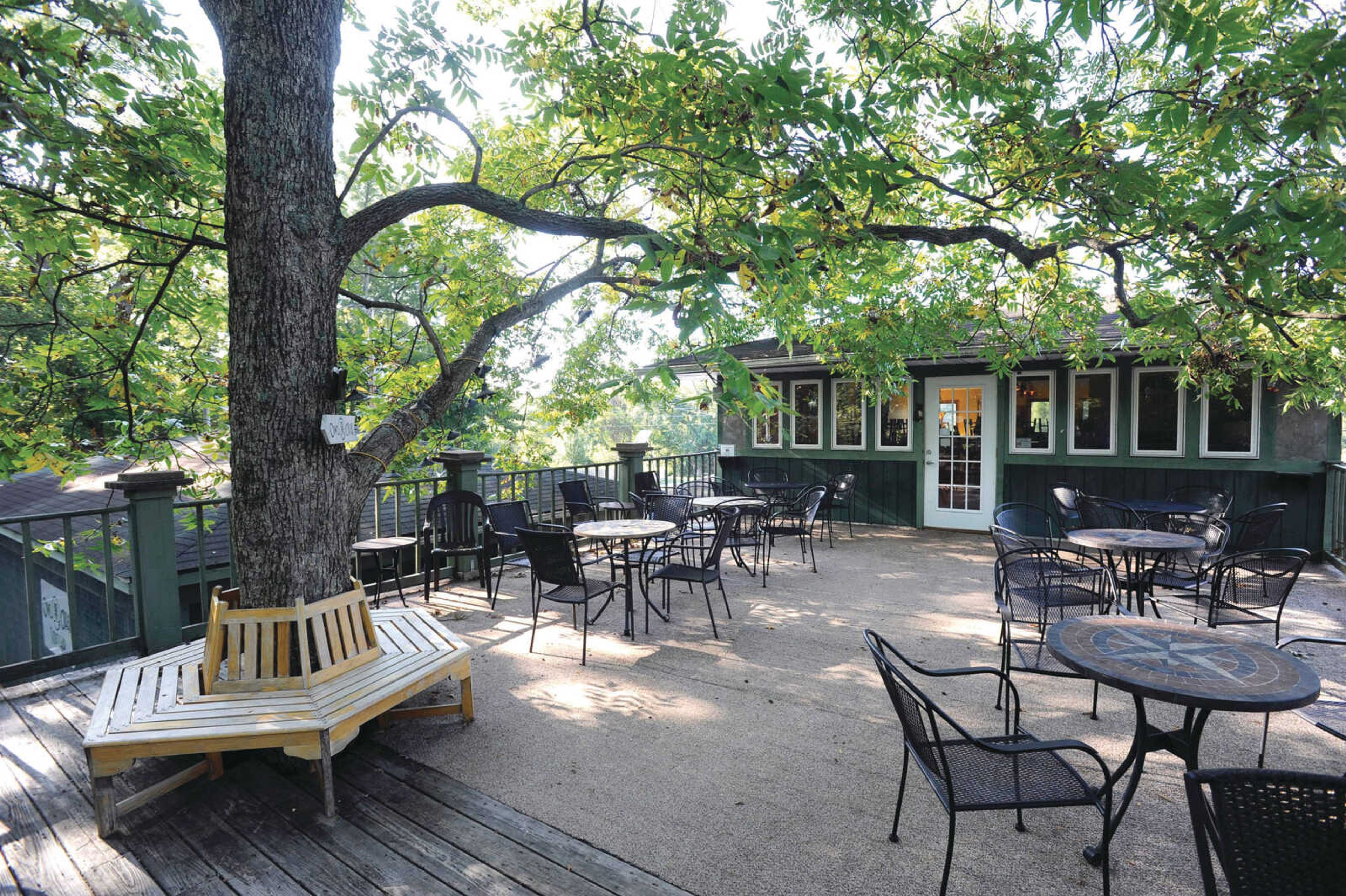
For more information about Owl Creek Vineyard, visit http://www.owlcreekvineyard.com/.
Connect with the Southeast Missourian Newsroom:
For corrections to this story or other insights for the editor, click here. To submit a letter to the editor, click here. To learn about the Southeast Missourian’s AI Policy, click here.

